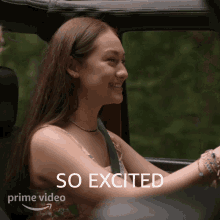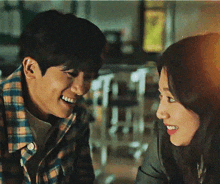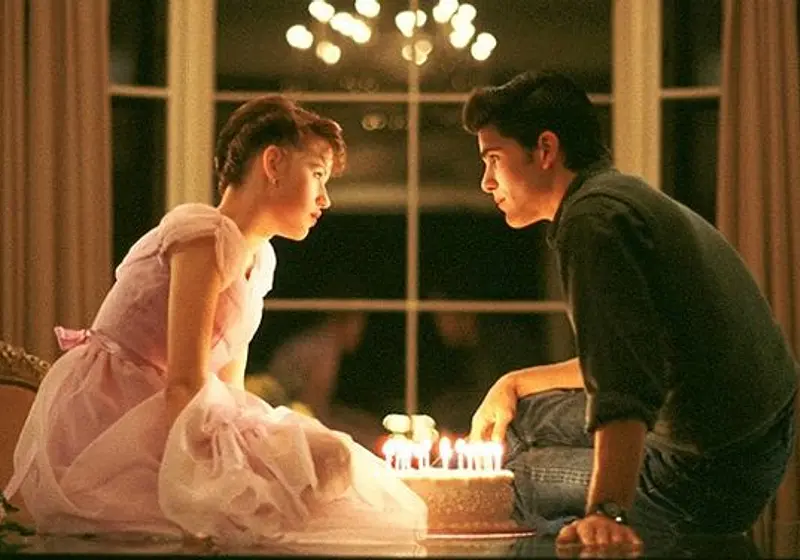The 2000s romcoms didn’t just tell love stories; they defined a generation’s understanding of romance, humor, and the serendipitous magic of human connection. It was an era when meet-cutes, grand gestures, and quirky characters ruled the screens, making audiences laugh, cry, and believe in love all over again. These films weren’t just cinematic experiences; they became cultural touchstones that still resonate today.
Let us slide into your dms 🥰
Get notified of top trending articles like this one every week! (we won't spam you)The Magic of the Meet-Cute
Every great rom-com begins with a meet-cute, and the 2000s perfected this trope. From Elle Woods’ accidental encounter with Warner in Legally Blonde to Bridget Jones’ cringe-worthy introduction to Mark Darcy in Bridget Jones’s Diary, these moments combined awkwardness and charm to set the tone for the story. These interactions felt real and relatable, reminding us of the unpredictability of love.
One of the most iconic meet-cutes of the decade came from Notting Hill (1999—close enough to count in spirit!). When Hugh Grant’s bumbling bookstore owner spills orange juice on Julia Roberts’ glamorous movie star, the scene captures the everyday magic of chance encounters. It wasn’t just about romance; it was about two worlds colliding in the most unexpected way.
Another unforgettable meet-cute came in Serendipity (2001), where John Cusack and Kate Beckinsale’s characters randomly meet while shopping for gloves, sparking a connection that fate keeps bringing back. Similarly, 13 Going on 30 (2004) featured childhood best friends reconnecting in adulthood, blending nostalgia and romance into a delightful meet-cute.
In Hitch (2005), Will Smith’s suave "date doctor" meets his match in Eva Mendes’ character, setting the stage for a hilarious and heartfelt romantic journey. Meanwhile, The Proposal (2009) uses an unconventional meet-cute, where Sandra Bullock’s demanding boss coerces Ryan Reynolds’ assistant into a fake engagement that turns unexpectedly real.
In She’s the Man (2006), Amanda Bynes’s character Viola accidentally sets the stage for chaotic romance while impersonating her brother. Her unexpected bond with Channing Tatum’s Duke creates one of the most charming meet-cutes of the decade.
In The Parent Trap (1998 but widely cherished into the 2000s), Lindsay Lohan’s double role creates a heartwarming family-centric meet-cute as estranged parents reconnect.
In The Princess Diaries (2001), Mia Thermopolis discovers her royal heritage while slowly falling for her schoolmate, Michael, showcasing a dreamy yet relatable romantic journey.

Take the Quiz: What K-Drama Character Are You The Most Like?
Take this quiz to find out which K-Drama Character you're like the most!
Relatable Characters with Big Dreams
The 2000s romcoms gave us protagonists who felt like our friends. They weren’t perfect, and that was their charm. Think of Andy Sachs (The Devil Wears Prada) juggling career ambitions and personal growth or Jenna Rink (13 Going on 30) rediscovering her inner child while navigating adulthood. These characters taught us that self-discovery and love often go hand in hand.
In Sweet Home Alabama (2002), Reese Witherspoon’s Melanie struggles between her small-town roots and her big-city dreams, creating a relatable journey of finding where she truly belongs. Similarly, Maid in Manhattan (2002) gave us Jennifer Lopez’s portrayal of a hardworking single mom finding love in an unexpected place, highlighting themes of aspiration and authenticity.
Failure to Launch (2006) gave us a hilarious twist with Matthew McConaughey’s character navigating his extended stay in his parents’ home while finding love with Sarah Jessica Parker. On the other hand, Just Like Heaven (2005) blended fantasy with reality as Reese Witherspoon and Mark Ruffalo’s characters’ lives intertwined across dimensions.
In The Prince and Me (2004), Julia Stiles’s Paige wrestles with her aspirations of becoming a doctor while falling for a prince, showing that love doesn’t mean compromising one’s dreams. The Holiday (2006) similarly brought together characters, redefining their lives while embracing new love.
In The Wedding Planner (2001), Jennifer Lopez plays Mary, a perfectionist planner whose life takes a surprising turn when she falls for a client, adding humor and heart to her professional dreams. Similarly, Two Weeks Notice (2002) pairs Sandra Bullock and Hugh Grant in a story about work-life balance that evolves into romance.
Post Grad (2009) followed Alexis Bledel’s Ryden navigating post-college uncertainty and romance, resonating with young audiences charting their paths. Meanwhile, Love and Other Drugs (2010) explored deeper themes of vulnerability and love with Anne Hathaway and Jake Gyllenhaal’s characters.
Unlike earlier romcoms that sometimes relied on outdated gender dynamics, 2000s romcoms leaned into stories where the protagonists grew as individuals before finding their happily ever after. They showed us that love is a journey, not just a destination.

Image Credit: Courtesy of Onuma Inthapong
The Quintessential Grand Gestures
No romcom would be complete without a grand gesture, and the 2000s had them in abundance. From Heath Ledger’s unforgettable serenade of "Can’t Take My Eyes Off You" in 10 Things I Hate About You to the flash-mob proposal in Love Actually, these moments made us swoon. These scenes weren’t just romantic; they were cinematic celebrations of vulnerability and boldness.
In 27 Dresses (2008), the grand gesture came in the form of James Marsden’s character finally seeing past Katherine Heigl’s obsession with weddings and understanding her true desires. Meanwhile, in P.S. I Love You (2007), the love letters left behind by Gerard Butler’s character serve as an ongoing grand gesture that touched hearts worldwide.
The quirky and heartfelt Music and Lyrics (2007) brought us Hugh Grant and Drew Barrymore composing the perfect love song, culminating in a musical grand gesture that perfectly encapsulated their connection. Meanwhile, Crazy, Stupid, Love (2011, late to the party but in the same spirit) gave us Ryan Gosling’s ultimate rom-com transformation from a player to a devoted romantic with Emma Stone.
In How to Lose a Guy in 10 Days (2003), Matthew McConaughey chasing Kate Hudson on a motorcycle through New York traffic was as exhilarating as it was romantic. Similarly, Runaway Bride (1999—still worthy of a mention) featured Julia Roberts galloping on horseback to win back Richard Gere.
500 Days of Summer (2009) flipped the grand gesture trope, offering a poignant, bittersweet take on love that resonated with audiences seeking realism amidst romance.
In 50 First Dates (2004), Adam Sandler’s character Henry proves his love daily to Drew Barrymore’s Lucy, whose memory resets each morning, making each grand gesture touching and unique. Likewise, What Happens in Vegas (2008) uses the chaos of an impulsive marriage to deliver heartfelt moments.
But not every grand gesture had to be flashy. In The Holiday (2006), Jude Law’s quiet confession of love to Cameron Diaz over Christmas embodied intimacy and sincerity, proving that small moments can be just as grand. And in Pride and Prejudice (2005), Mr. Darcy’s heartfelt proposal to Elizabeth remains a timeless example of vulnerability and devotion.
Soundtracks That Stole Our Hearts
Music played a vital role in setting the mood for 2000s romcoms. Who can forget Natasha Bedingfield’s "Unwritten" playing during The Devil Wears Prada or Sixpence None the Richer’s "Kiss Me" in She’s All That? These soundtracks became as iconic as the movies themselves, shaping how we remember the stories.
In A Cinderella Story (2004), Hilary Duff’s "Anywhere But Here" underscored her character’s journey, while 13 Going on 30 paired Liz Phair’s "Why Can’t I?" with Jenna’s self-discovery. Love Actually was packed with memorable tunes, including "All I Want for Christmas Is You" by Olivia Olson, which became synonymous with the holiday season.
The unforgettable moment in How to Lose a Guy in 10 Days was cemented by Carly Simon’s "You’re So Vain," as Andie and Ben’s duet reflected their undeniable chemistry despite their clashing intentions. Meanwhile, Hitch had catchy tunes like Amerie’s "1 Thing" that made its dance scenes unforgettable.
In Call Me by Your Name (2017), Sufjan Stevens’ soulful tracks like "Mystery of Love" added an emotional depth that transcended the traditional romcom formula while redefining modern romance.
The soundtrack amplified every emotion, ensuring that the stories lingered long after the credits rolled.

Image Credit: Courtesy of Andrej Lišakov
Legacy and Enduring Appeal
Though decades have passed, the 2000s romcoms continue to influence modern cinema. Netflix’s resurgence of romantic comedies, such as To All the Boys I’ve Loved Before and Set It Up, borrows heavily from the charm and structure of these classics.
The timeless themes of love, humor, and self-discovery ensure that these films remain beloved by new generations.
In celebrating 2000s romcoms, we’re not just reminiscing; we’re acknowledging their role in shaping our collective imagination.
Long live the romcoms of the 2000s!









.webp)




.jpg)